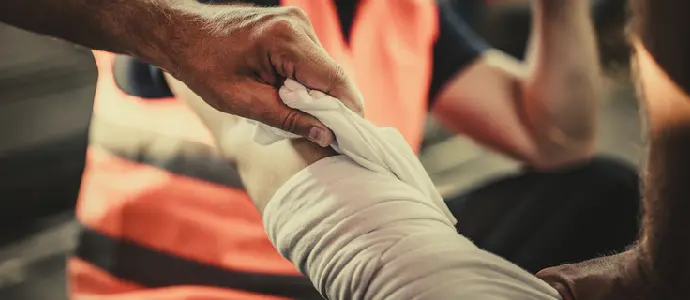Third Party Liability in Work Accidents
When pursuing a workers’ compensation claim, it’s important to know who the responsible party is so that you can hold them accountable. In some cases, a worker may pursue a third-party claim against an individual or corporation outside their company that contributed to the incident. There are many situations in which this can occur. Here are some of the most common.
Contractors
Contractors can take many forms on job sites, from general contractors who manage construction projects to independent contract workers like electricians, landscapers, painters, etc. In most cases, these independent workers are not considered employees of the hiring company, so liability may come into question if an injury-causing incident occurs.
Because of the employment status, if a contractor is injured, this will likely be treated as a third-party work injury claim. Additionally, if they are the reason that another employee becomes injured, this would also likely be considered a third-party claim.
Vendors
Like contractors, vendors are also hired by a company to complete a specific task or provide a product or service. The key difference is that these relationships are generally much shorter term than those with contractors. In most cases, vendors may be utilized for a one-time event or have an ongoing relationship with a company that buys from them.
Vendors can be held liable in a third-party claim if they provide defective products or services that cause injury. For example, if you have a standing partnership with a certain vendor and they sell you products that have been recalled and an employee is injured as a result, you can file a third-party claim.
Product Manufacturers
If you or your employees use a product during your work and sustain an injury as a result, you may have a claim against the manufacturer. This is most common with machinery and power tools but can really be any type of product, including vehicles.
To win this type of claim, you will need to show that the product was defectively designed or manufactured and that this defect led to your injuries. Additionally, the company must have failed to warn consumers about the dangers of using the product. These claims can be complex, so it’s important to speak with an attorney if you think this situation applies to you.
Property Owners
If you are injured while working on someone else’s property, they may be held liable. This is most common in cases where the worker is an employee of a company that does not own the property, like a janitorial or security company.
This can commonly occur in slips, trips, and falls—for example, if a security guard is protecting the property and becomes injured by loose flooring, wet areas, or unmarked items on the floor, they can pursue a claim against the property owner. Property owners have a duty to keep their premises safe for those who are legally allowed to be there. If they fail to do so and someone is injured as a result, they can be held liable.
Proving Fault in a Third Party Claim
To hold a third party liable for an injury that occurred while you were working, you will need to prove that they were at fault. This will generally require an investigation into the incident where they can assess what occurred, the parties involved, and if there is any contributing evidence that may support your claim (videos, documentation, etc.).
North Dakota Workplace Accident Lawyers
Work injuries can often be severe and leave injured individuals with lengthy recovery periods. While you should focus on healing from your injury, our North Dakota attorneys can help ensure you have a successful claim. Since 1909, Pringle & Herigstad, P.C. has been helping people throughout the state with their injury claims. Schedule a free consultation today by calling (855) 245-5100.
